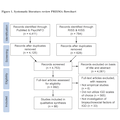Abstract
Background and aims: Considering the growing number of gamers worldwide and increasing public concerns regarding the negative consequences of problematic gaming, the aim of the present systematic review was to provide a comprehensive overview of gaming disorder (GD) by identifying empirical studies investigating biological, psychological, and social factors of GD using screening tools with well-defined psychometric properties.
Methods: A systematic literature search was conducted through PsycINFO, PubMed, RISS, and KISS, and papers published up to January 2022 were included. Studies were screened based on the GD diagnostic tool usage, and only five scales with well-established psychometric properties were included. A total of 93 studies were included in the synthesis, and the results were classified into three groups based on biological, psychological, and social factors.
Results: Biological factors (n=8) included reward, self-concept, brain structure, and functional connectivity. Psychological factors (n=67) included psychiatric symptoms, psychological health, emotion regulation, personality traits, and other dimensions. Social factors (n=29) included family, social interaction, culture, school, and social support.
Discussion: When the excess amount of assessment tools with varying psychometric properties were controlled for, mixed results were observed with regards to impulsivity, social relations, and family-related factors, and some domains suffered from a lack of study results to confirm any relevant patterns.
Conclusions: More longitudinal and neurobiological studies, consensus on a diagnostic tool with well-defined psychometric properties, and an in-depth understanding of gaming-related factors should be established to settle the debate regarding psychometric weaknesses of the current diagnostic system and for GD to gain greater legitimacy in the field of behavioral addiction.
